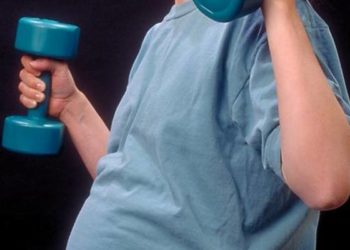Sensitive cardiac injury marker could reduce stress testing for myocardial ischemia
1. The authors of this study found that low levels of high-sensitivity cardiac troponin I may be a useful measurement to rule out inducible myocardial ischemia among patients with stable coronary artery disease (CAD).
2. In this study’s three year-follow up, no adverse effects were observed for patients with low levels of high-sensitivity cardiac troponin I.
Evidence Rating Level: 2 (Good)
Study Rundown: Currently, patients with CAD may undergo routine surveillance stress testing. This testing is often costly and overused. Furthermore, current guidelines recommend against routine stress testing in patients with stable ischemic CAD, unless the purpose of the test is to assess new or progressive symptoms in patients. The authors of this study aimed to determine whether another measurement, low levels of resting high-sensitivity cardiac troponin I, could identify persons without inducible myocardial ischemia. Generally, they found that this marker could reduce stress testing for myocardial ischemia. The limitations of this study included that data may not be applicable to patients without known CAD. Furthermore, a larger cohort study would be important to validate results.
Click to read the study in Annals of Internal Medicine
Relevant Reading: The utility of troponin measurement to detect myocardial infarction: review of the current findings
In-Depth [observational study]: The authors conducted an observational cohort study that assessed the relationship between low levels of resting high-sensitivity cardiac troponin I and identifying persons without inducible myocardial ischemia. A total of 589 patients with stable CAD were included in the derivation group and 118 in the validation cohort. The mean age of patients in the derivation cohort was 63 years (SD, 9). The majority of patients were asymptomatic, with no chest pain (72%). Furthermore, in the derivation cohort, 10 out of 101 patients with a high-sensitivity cardiac troponin I level below 2.5pg/mL were found to have inducible myocardial ischemia (NPV, 90% [95% CI, 83% to 95%]). In comparison, 4 out of 32 patients in the validation cohort with high-sensitivity cardiac troponin below 2.5 pg/mL had inducible ischemia (NPV, 88% [CI, 71% to 96%]). Generally, the authors observed that for patients with stable CAD, low levels of the high-sensitivity cardiac troponin I had a high negative predictive value for ruling out inducible myocardial ischemia with stress testing. Furthermore, they found that in follow-up of the derivation cohort, there were no adverse events in patients with levels below 2.5 pg/mL over a median of 3 years. In contrast, for patients with levels of 2.5 pg/mL or greater, the authors observed 33 (7%) cardiovascular deaths or myocardial infarctions.
Image: PD
©2018 2 Minute Medicine, Inc. All rights reserved. No works may be reproduced without expressed written consent from 2 Minute Medicine, Inc. Inquire about licensing here. No article should be construed as medical advice and is not intended as such by the authors or by 2 Minute Medicine, Inc.







